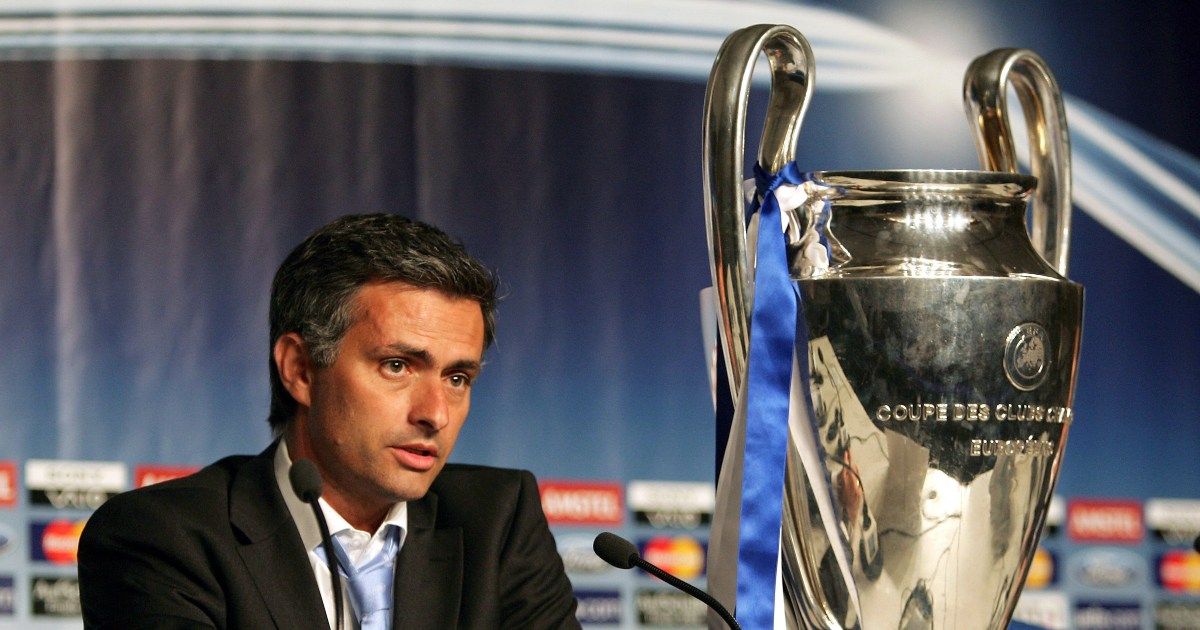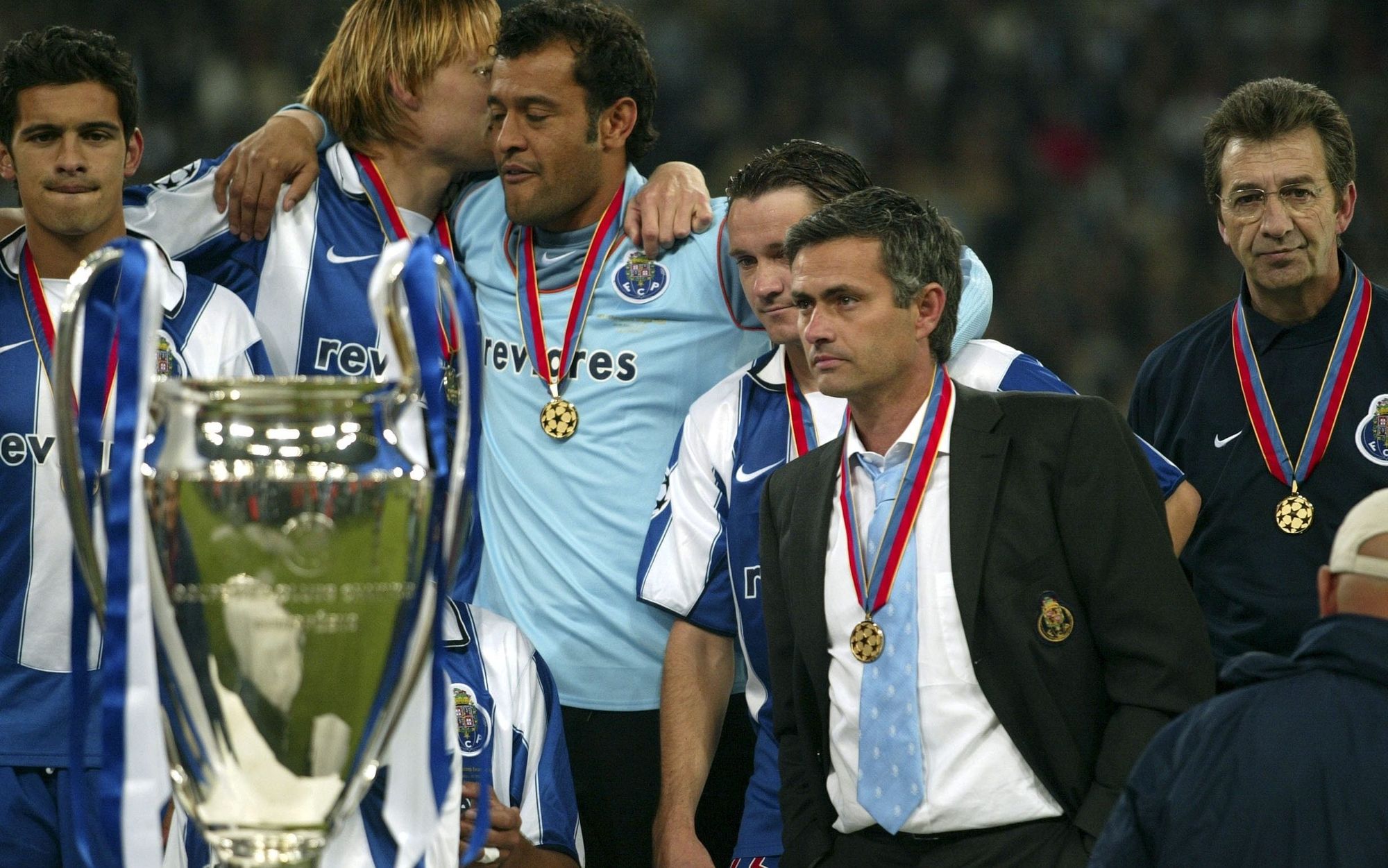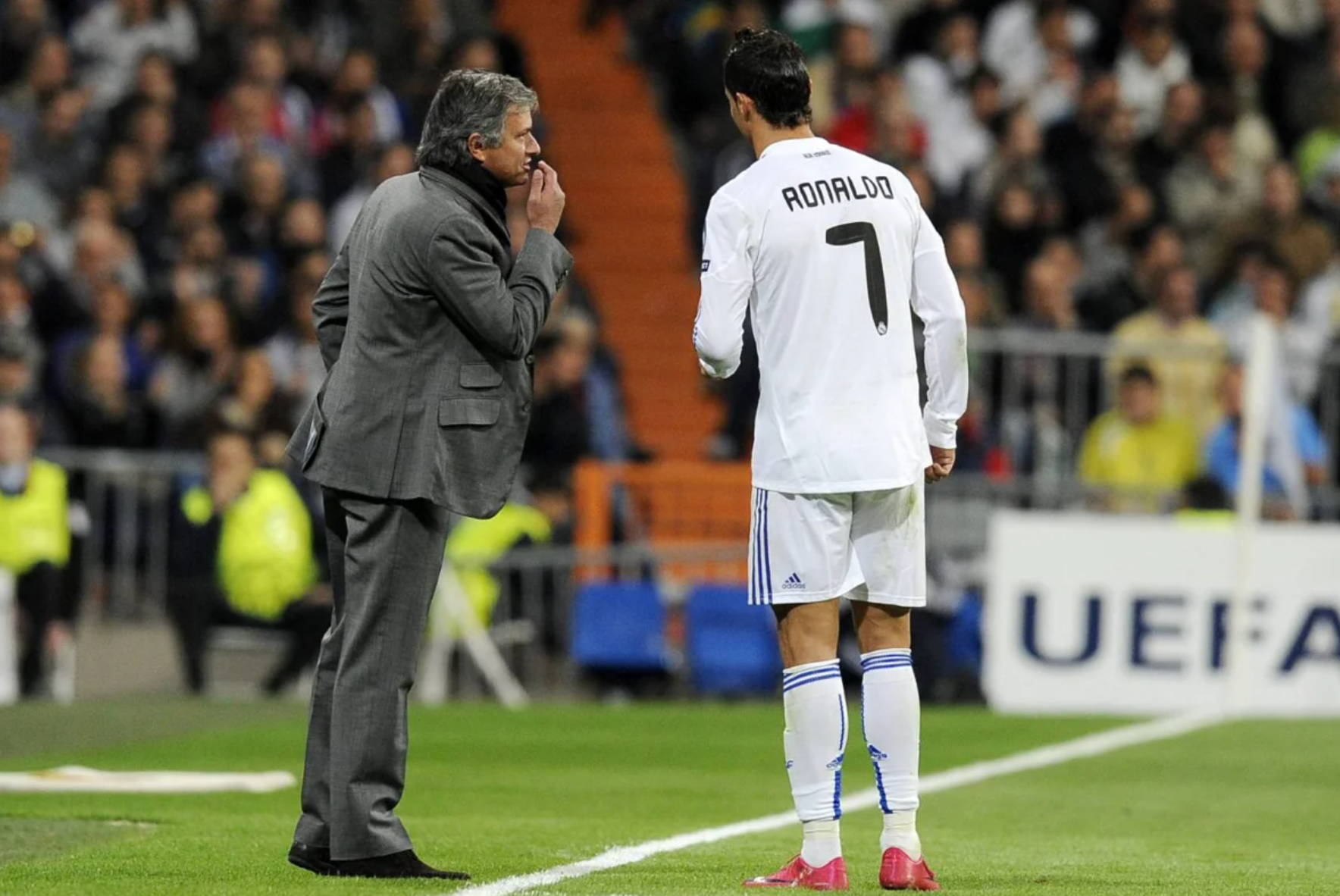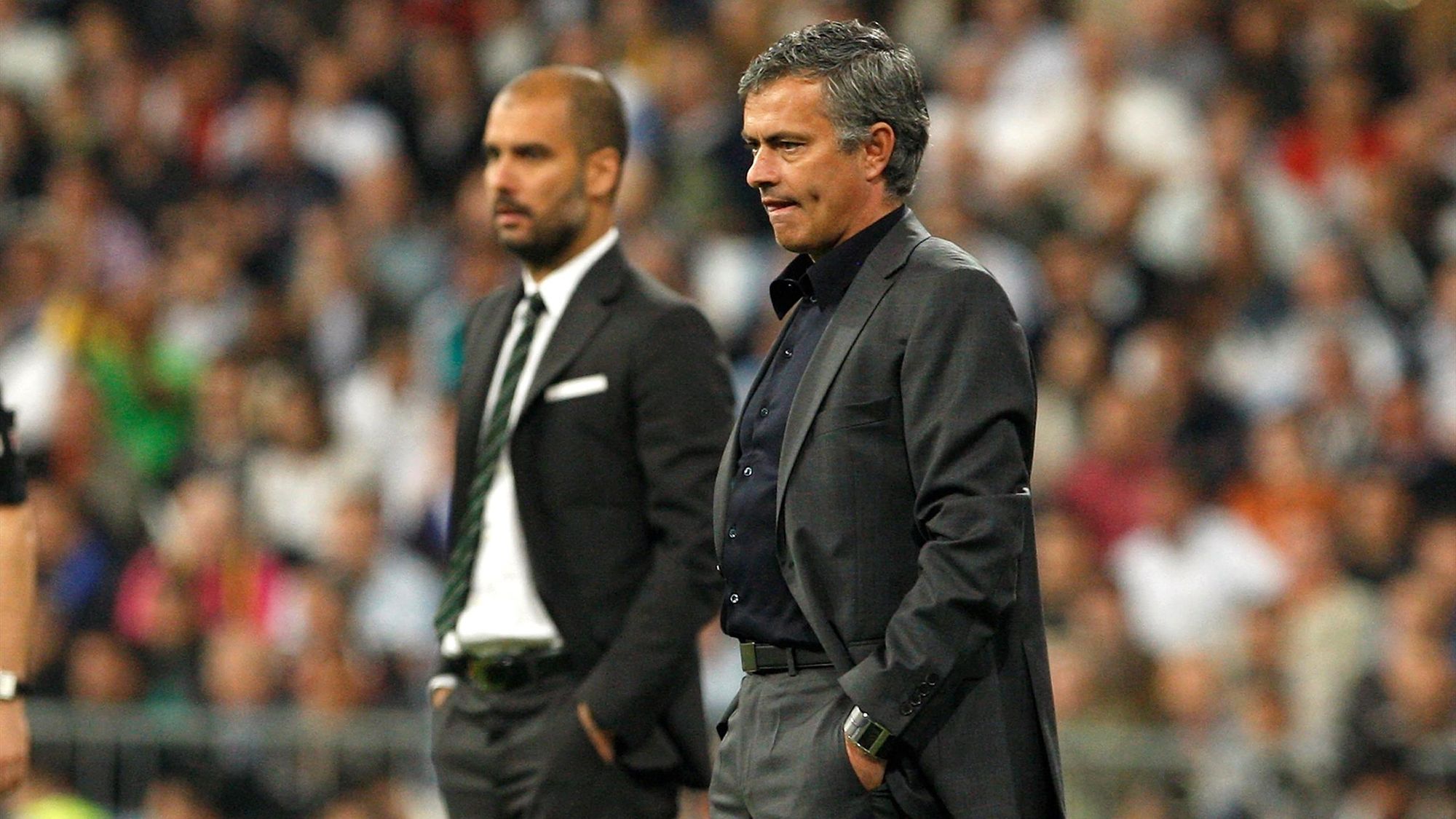The Special One: Exploring the Legacy of Jose Mourinho
Jose Mourinho will forever be known as "The Special One," a moniker that reflects his unique impact on football.

I. Introduction
Jose Mourinho, a name synonymous with football management, has long been known as "The Special One." Mourinho's story is one of relentless ambition and extraordinary success, making him one of the most iconic managers in the history of the game. From his beginnings on the sidelines of Portuguese football to conquering the top leagues in Europe, Mourinho's journey is a testament to his tactical acumen and charismatic leadership.
While he may be celebrated for his managerial prowess and silverware collection, Mourinho's legacy extends beyond the number of trophies he's won. It's about his unique tactical innovations, his ability to turn teams into formidable units, and his knack for sparking unwavering devotion from his players.
As we delve into Mourinho's life, career, and impact, we'll explore not only his tactical genius but also the controversies and rivalries that have punctuated his journey. We'll examine how he has influenced modern football and shaped the careers of countless players and managers. Mourinho is more than just a coach; he's an enigma, a leader, and an indelible part of the beautiful game's history. This article aims to uncover the layers of his legacy and understand what truly makes him "The Special One."
II. Early Life and Football Background
Jose Mourinho's journey into the world of football began in Setúbal, Portugal, where he was born on January 26, 1963. Raised in a football-loving family, Mourinho was exposed to the sport from a young age. His father, José Manuel Mourinho Félix, was a professional goalkeeper and manager, which undoubtedly played a significant role in shaping the young Mourinho's passion for the game.
As a player, Mourinho's career was modest, primarily as a central midfielder. His playing career took him through various lower-division Portuguese clubs, but he never reached the heights of stardom that he would later achieve as a manager. It was in coaching that Mourinho truly found his calling. After working as a school coach and a physical education teacher, he began to climb the coaching ladder. His early coaching experiences included roles as an interpreter for Sir Bobby Robson during Robson's tenure at Sporting CP and FC Porto.
These formative years in the company of a respected English manager like Robson exposed Mourinho to a different level of football thinking and management. It was here that he began to develop the tactical acumen and charisma that would define his managerial career. Jose Mourinho's journey in football, from his humble beginnings in Setúbal to his eventual ascent as one of the game's most celebrated managers, is a testament to his dedication and relentless pursuit of excellence.
III. Rise to Prominence
Mourinho's managerial career truly took off when he was appointed as the head coach of Benfica in 2000. Though his time at the Portuguese club was relatively brief, it marked the beginning of his journey to the top. His tenure at Benfica was followed by a stint at União de Leiria, where he continued to demonstrate his tactical prowess. However, it was at FC Porto that Mourinho's managerial genius truly shone.
In 2002, Mourinho took the reins at FC Porto, a club that was far from a European football powerhouse at the time. In just two seasons, he led the team to remarkable success, winning the Primeira Liga, the Taca de Portugal, and the UEFA Cup (now known as the UEFA Europa League) in 2003. However, his crowning achievement with Porto was undoubtedly the stunning victory in the 2003-2004 UEFA Champions League competition, where he defeated AS Monaco in the final. Mourinho's tactical discipline, motivational skills, and ability to organize a team defied the odds and established him as one of Europe's top managers.

Mourinho's success with Porto caught the attention of top European clubs, and he moved to Chelsea in 2004. His arrival in the English Premier League marked the beginning of a tumultuous but highly successful period. In his first season at Stamford Bridge, Mourinho guided Chelsea to their first league title in 50 years. His pragmatic, organized style of play, coupled with his charismatic and often controversial personality, made him a captivating figure in English football. During his first stint at Chelsea, Mourinho won two Premier League titles, two League Cups, and an FA Cup. His tactical prowess and strong emphasis on defense made Chelsea a formidable force in European football.
The "Special One," as Mourinho famously dubbed himself, went on to manage Inter Milan, where he achieved a historic treble in the 2009-2010 season. Inter won Serie A, the Coppa Italia, and the UEFA Champions League under his guidance. Mourinho's ability to motivate his players and adapt his tactics to different opponents was on full display as Inter defeated Barcelona and Bayern Munich in route to European glory.
Mourinho's journey in the footballing world continued with managerial roles at Real Madrid, Chelsea (for a second spell), Manchester United, Tottenham Hotspur and AS Roma. Jose Mourinho's managerial stints at Real Madrid and Manchester United were marked by both successes and challenges, showcasing his ability to manage top-tier clubs in different footballing environments.
Real Madrid (2010-2013)
Mourinho's appointment as the head coach of Real Madrid in 2010 marked a high-profile move to one of the world's most prestigious clubs. During his tenure at the Santiago Bernabeu, Mourinho aimed to end Barcelona's dominance in both domestic and European competitions.
La Liga Success: In the 2011-2012 season, Mourinho led Real Madrid to the La Liga title, ending Barcelona's run of three consecutive championships. His tactical discipline and emphasis on defensive solidity played a crucial role in this triumph.

Controversies: Mourinho's time at Real Madrid was marred by controversies, including high-profile clashes with players and the media. Here we can just mention his clash with Iker Casillas, the legendary Real Madrid and Spain goalkeeper, which saw the player transfer to Porto. His confrontational style, while effective in some aspects, created a divisive atmosphere within the club, reason for which he left.
Champions League Pursuit: Despite his success in La Liga, Mourinho couldn't replicate that success in the UEFA Champions League with Real Madrid. The team faced early eliminations in the competition during his tenure.
Manchester United (2016-2018)
Mourinho's appointment as the manager of Manchester United in 2016 marked his return to the English Premier League and to a club with a rich history.
EFL Cup and Europa League: In his debut season at Manchester United, Mourinho secured the EFL Cup and the UEFA Europa League. The latter victory provided the club with a spot in the UEFA Champions League, showcasing Mourinho's ability to deliver silverware.
Premier League Challenges: While Mourinho improved Manchester United's league performance, the team couldn't secure the Premier League title during his tenure. However, they finished second in the 2017-2018 season, their highest league position since Sir Alex Ferguson's era.
Player Relationships: Mourinho's relationship with some players, including high-profile signings like Paul Pogba, became a subject of media scrutiny. Tensions within the squad and reported disagreements with key players affected the team's cohesion.
Departure: Mourinho's time at Manchester United ended in December 2018, following a string of disappointing results and reported internal issues. His departure marked a challenging period for the club.
Tottenham Hotspur (2019-2021)
Jose Mourinho's tenure at Tottenham Hotspur began in November 2019, taking over from Mauricio Pochettino. His arrival generated a mix of excitement and skepticism among Spurs fans due to his reputation as a successful yet defensively-minded manager.
In his first season, Mourinho guided Tottenham to a sixth-place finish in the Premier League and secured a Europa League spot. However, his pragmatic style of play received criticism for its perceived lack of attacking flair. In the 2020-2021 season, Mourinho aimed for silverware, reaching the Carabao Cup final, but he parted ways with the club in the week of the final. In his words, at Tottenham he won "half a trophy". Their Europa League campaign ended in the Round of 16.
AS Roma (2021 - present)
At AS Roma Jose Mourinho became the first manager ever to win the Champions League, Europa League and Europa Conference League as he led Roma to a 1-0 win over Feyenoord in the inaugural final of the Europa Conference League. It is the first major European triumph in the Italian giants' 94-year history. Mourinho is currently still the manager of the Italian club.

Jose Mourinho's rise to prominence was characterized by his unwavering self-belief, tactical acumen, and a larger-than-life persona. His journey from modest beginnings in Portugal to becoming one of football's most iconic managers is a testament to his dedication and passion for the beautiful game. Mourinho's legacy continues to influence the world of football, making him a central figure in the sport's history.
IV. Tactical Genius
Jose Mourinho's reputation as "The Special One" in football management is intricately tied to his tactical genius and innovative strategies. Throughout his career, he has demonstrated a keen understanding of the game, marked by several key elements in his playing style and defensive prowess.
Defensive Solidity: Mourinho is renowned for his emphasis on defensive organization. His teams are typically well-drilled defensively, making them difficult to break down. He often employs a low-block defensive system that forces opponents to play in tight spaces, limiting their attacking options.
Counterattacking Prowess: Mourinho's teams excel in counterattacking football. They absorb pressure from opponents, then quickly transition to exploit spaces left behind. His tactical setup often relies on pacy and technically skilled players who can launch swift counterattacks.
Set Pieces: Mourinho places great importance on set pieces, both defensively and offensively. His teams are well-drilled in defending set plays, minimizing the chances of conceding from them. On the offensive side, he utilizes set pieces as an additional goal-scoring avenue.
Meticulous Planning: Mourinho's tactical approach involves thorough preparation for each opponent. He studies opposition teams extensively, identifying weaknesses to exploit. This meticulous planning often leads to strategic victories, particularly in high-stakes matches.
Player Roles and Discipline: Mourinho demands discipline and adherence to tactical roles from his players. He instills a strong work ethic and team unity, creating a sense of collective responsibility on the pitch.
Adaptability: While known for his pragmatic approach, Mourinho has shown the ability to adapt to different situations and opponents. He can tailor his tactics to suit the strengths and weaknesses of his own team and the opposition.
Mourinho's tactical innovations have led to numerous successes, including league titles, domestic cups, and European trophies. His ability to organize a team defensively and exploit weaknesses in the opposition's setup has made him one of the most respected and feared managers in the world of football.
V. Rivalries and Controversies
Jose Mourinho's career has been defined by intense rivalries and memorable controversies, adding layers of drama and intrigue to his managerial journey.
Rivalries: Mourinho's confrontations with other top managers and clubs have been central to his legacy. One of the most iconic rivalries is his ongoing feud with Arsène Wenger, then at Arsenal. Their touchline spats and war of words became legendary. Another prominent rivalry was with Pep Guardiola during his time at Barcelona, as Mourinho managed Real Madrid. The "El Clásico" clashes between the two giants of Spanish football became heated battles not just on the field but also in the press room.

Controversies: Mourinho has often been at the center of controversies, both on and off the pitch. His abrasive and outspoken nature has sparked numerous headline-grabbing incidents. From poking then-Barcelona assistant coach Tito Vilanova in the eye during a touchline altercation to his comments about match officials, he's never shied away from confrontation. One of the most memorable controversies occurred during his second stint at Chelsea when he publicly criticized club doctor Eva Carneiro, leading to her departure from the club. His relationship with players, particularly high-profile ones like Cristiano Ronaldo and Paul Pogba, has also been a source of tension and controversy.
Despite the controversies, Mourinho's competitive spirit and ability to get under the skin of his rivals have made him a captivating figure in the footballing world. His clashes, both verbal and tactical, have added an extra layer of excitement to the beautiful game.
VI. Legacy and Influence
Jose Mourinho's legacy in football is undeniable, and his influence continues to shape the modern game. His tactical acumen, charismatic presence, and unyielding desire for success have left an indelible mark.
Impact on Modern Football: Mourinho's influence on modern football can be seen in several key areas. His tactical innovations, such as the 4-2-3-1 formation and the emphasis on a well-organized defense, have become integral to many top teams' strategies. His "parking the bus" approach, while controversial, has shown the importance of defensive solidity in high-stakes matches. Moreover, his meticulous attention to detail, both on and off the pitch, set new standards for professionalism in football management.
Managers and Players Influenced: Mourinho has served as a mentor to several prominent managers and has influenced countless players. Some of his former assistants, like André Villas-Boas and Brendan Rodgers, have gone on to successful managerial careers, often implementing Mourinho's tactical principles. In terms of players, those who have worked under Mourinho often speak of the valuable lessons they've learned. His man-management skills, ability to instill a winning mentality, and knack for getting the best out of his squads have left a lasting impact. Cristiano Ronaldo, whom Mourinho coached at Real Madrid, has frequently praised his influence on his career.
X. Conclusion
In conclusion, Jose Mourinho's legacy in football is a story of unparalleled success, innovation, rivalry, and controversy. His journey from humble beginnings to becoming one of the most recognized and polarizing figures in the sport is a testament to his passion and dedication. Mourinho's tactical genius, evidenced by his ability to adapt and strategize for different opponents and scenarios, has had a profound impact on the way modern football is played. His emphasis on defensive solidity and organization has become a cornerstone for many top clubs.
Beyond the tactics, Mourinho's charisma, sharp wit, and psychological mastery in press conferences and interactions with rival managers have made him a larger-than-life character in the football world. His battles with other top managers, such as Arsène Wenger, Sir Alex Ferguson, and Pep Guardiola, have provided some of the most memorable moments in recent football history. While controversies have sometimes clouded his legacy, Mourinho's lasting influence on the sport is undeniable. He has inspired a new generation of managers and players, teaching them not only the intricacies of football but also the importance of resilience and mental strength.
Jose Mourinho will forever be known as "The Special One," a moniker that reflects his unique impact on football.

